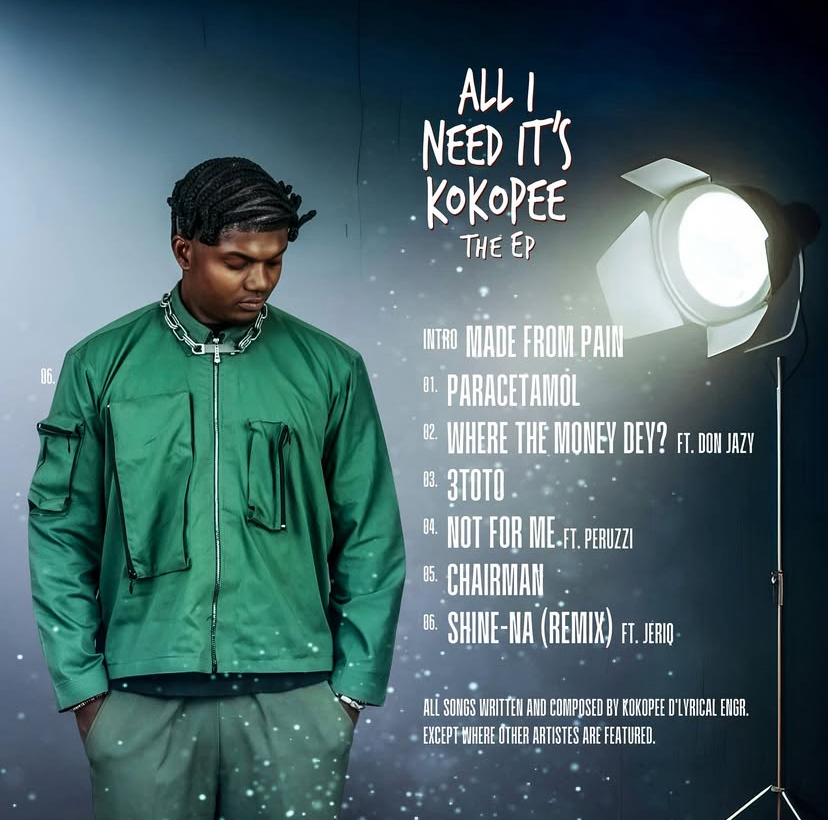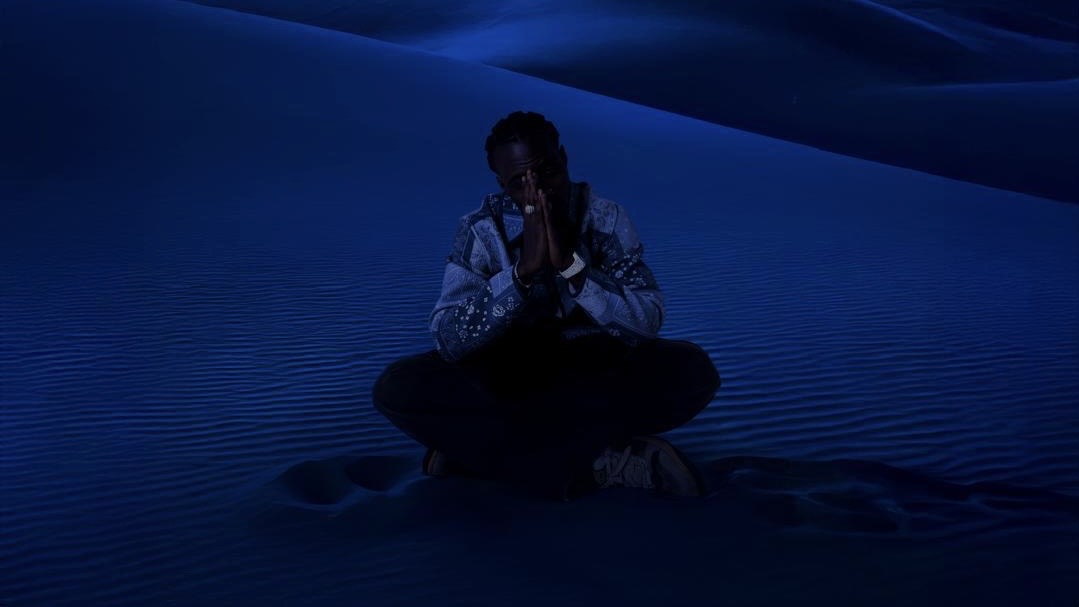Koko Pee’s latest project, “All I Need”, arrived on August 15th as a remarkably focused statement, packing a lifetime’s worth of emotions into just seven songs spanning 18 minutes. The project’s brevity makes it feel like a concentrated dose of the artist’s most essential thoughts on love, loss, and the pursuit of stability.
The project flows seamlessly between high-tempo Afrobeats rhythms and rap-inflected storytelling. The production maintains an optimistic energy even when addressing heavy subjects, which is a testament to the resilience that runs through the album’s core.
The thematic scope is surprisingly expansive for such a compact release. Koko Pee navigates various subjects, including the grief of losing a parent, the uncertain early days of a music career, and the gratitude that comes with finally finding some sort of stability.
The three featured collaborations feel purposeful rather than perfunctory. Peruzzi and Jeriq bring complementary energies to the project, while the inclusion of industry legend Don Jazzy on “Where Money Dey” represents both validation and artistic ambition. The Don Jazzy collaboration particularly stands out for its integration of Victor Uwaifo’s “Joromi”, a bold move that bridges generational gaps and showcases Koko Pee’s respect for Nigerian musical heritage.

The album’s strongest tracks demonstrate Koko Pee’s range and personality. The opening track “Made From Pain” sets the tone with raw honesty about struggle and perseverance, while “Paracetamol” can best be described as a love song in the way only a Nigerian would put it. This kind of distinctly Nigerian perspective appears throughout the album, perhaps most pointedly on “Not For Me,” where Koko Pee introduces social commentary like the community turning a couple into a laughingstock for not procreating immediately after marriage.
These tracks work because they balance universal emotions with specific cultural observations, making the personal feel communal without losing individual voice.
“All I Need” succeeds largely because it doesn’t overreach. The 18-minute runtime forces focus and eliminates filler, while the upbeat production prevents the heavier themes from becoming overwhelming. The collaboration choices show strategic thinking, and the integration of classic Nigerian elements demonstrates cultural awareness beyond the artist’s years.
The project positions Koko Pee as an artist worth watching, someone capable of balancing commercial appeal with substantive content. The album serves both casual listeners seeking upbeat Afrobeats sounds and those interested in more thoughtful explorations of young Nigerian life. At just 18 minutes, it demands little time investment but offers considerable emotional return.
This is focused, confident work from an artist who understands that sometimes saying less means communicating more.




